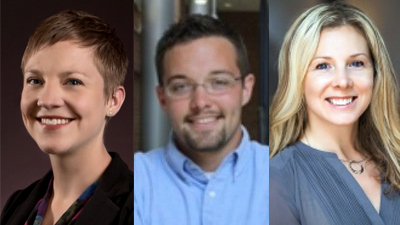Finding ways to communicate climate change, ethically and effectively
July 19, 2016

By Nicole Lee, North Carolina State University, Matthew VanDyke, Appalachian State University and Rachel Hutman, W20 Group
Evidence-based best practices for effective science communication are necessary now more than ever as environmental risks become hot-button partisan issues rather than purely scientific topics that communicate concern and motivate social change.
Research has shown that simply providing people with factual information is often not enough to influence their attitudes or behaviors related to environmental risks, especially politically polarized ones like climate change. This is important because although the scientific community overwhelmingly agrees that climate change is occurring due to human activity, about a third of the U.S. public disagrees. Additionally, there is a lot of disagreement about how to respond to the issue even among those that recognize the problem.
Media provide us with much of what we know about the world. The concept of framing refers to how media portray or characterize an issue, such as climate change. For example, take the issue of water scarcity: An advertisement may talk about the money-saving benefits of installing energy-efficient water fixtures in one’s home, but fail to mention the consequences for public health and security if we run out of water.
For decades, research has demonstrated that issues framed through the media often influence how audiences interpret and respond to those issues. Scholars have identified many different media frames that have been used to portray climate change over the years. These frames include conflict and strategy, scientific and technical uncertainty and morality and ethics, among others. To our knowledge, no research to date has examined individuals’ perceptions of the ethicality of these frames.
Our two studies, supported by the Page Center, will address the ethics of framing climate change. We hope to understand how different climate change messaging strategies identified by previous scholars are perceived among science communication practitioners and the public.
First, we will conduct a series of focus groups with public relations professionals that work for public or private organizations that communicate about climate change. These focus groups will provide insights into practitioner perceptions of ethical science communication practice in general and perceptions of the ethics of climate change frames specifically.
For the second phase of the project, we will conduct an online experiment to assess the effectiveness of different frames and how ethical these frames are perceived by the public.
Results from this project will help practitioners who communicate about climate change tailor messages in ways that are ethical and effective. By looking at both practitioner and audience perspectives, we will be able to assess commonalities and discrepancies between what frames communicators believe are ethical and how the public interprets those messages. Ultimately, this project aims to inform science communication best practices and effective message strategy.
This project was among six research studies funded by the 2016 Page & Johnson Legacy Scholar Grants. For more information about this work, please email Matthew VanDyke at vandykems@appstate.edu or Nicole Lee at nmlee2@ncsu.edu.

